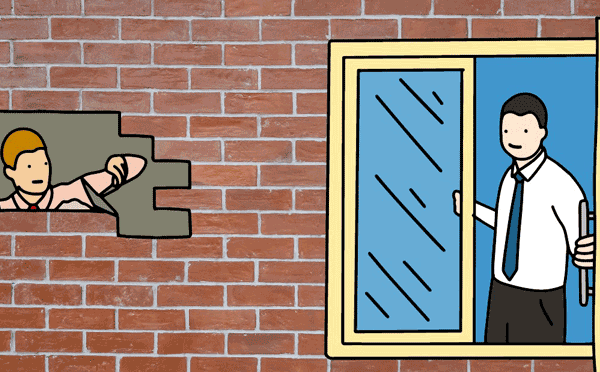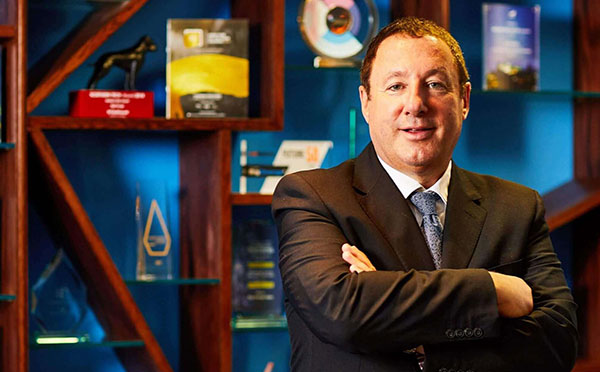Don’t wall yourself off from your team

Throughout history, the best bosses have always led from the front. When Julius Caesar crossed the Rubicon to wage war with Pompey, the ensuing civil war culminated in the bitter Battle of Pharsalus in 48BC.
Caesar was outnumbered and outmanoeuvred – his forces were being defeated. It was only by grabbing a shield and marching to the front of the line that he galvanised his legions to resist Pompey’s forces. They turned the tide and ended the four-year struggle with a decisive triumph.
In 2022, most modern bosses are no longer found on the battlefield but in the boardroom – but the lessons from ancient times are as valuable today as they have ever been.
Sitting out in the open
You need to have a rapport with your team, and you need to spend time in the mix with your colleagues to stay close to the inner workings of your business. This is why I am such a fan of an open-plan workspace, where leaders sit beside colleagues not in their own offices.
Mike Bloomberg, the serial entrepreneur and United Nations special envoy, recently posted on LinkedIn about his commitment to sitting “out in the open”.
He said: “In sports, the coach is on the field with the players, giving directions, drawing on whiteboards, huddling during timeouts, motivating and inspiring — and encouraging someone who made a mistake. The same should be true in business.”
The first CEO I saw working in an open-plan office was Archie Norman, back when he was CEO of Asda. I was there to pitch my speciality bread business and it was just extraordinary to me that his desk was in the centre of this massive office floor, and all his papers and books were there on his desk. That was in the early nineties – he was a true pioneer.
When I started BigChange, I knew I wanted to be on the “shop floor” too.
At Masternaut, my previous business, I had my own office. It was a glass office to make me more approachable, but it didn’t go far enough – it still walled me off from the team.
The legendary football manager Kevin Keegan OBE once told me that great managers put their arms around people, metaphorically speaking. You have to be human; you have to be in the detail. You can’t do that from behind glass.
Benefits of being close to the sales team
When I started BigChange, I sat with my colleagues in sales and marketing. I wanted to be next to the marketing and salespeople because that is one of my core strengths – a place where I can add value.
Sometimes, I would overhear someone talking about a prospect, and realise I knew that person from the past and could help make an introduction.
I may have bad hearing, but I always seemed to pick up on snatches of conversation where I could be helpful! Or a colleague would ask advice about how to target a particular sector, and I would make suggestions.
One of the real benefits of sitting with sales – with the “cash register” as I used to call it – was that I could hear where sticking points were in our processes. If something was taking longer than it should, I would be able to step in.
These insights were invaluable when building the business, and I believe that every leader would benefit from similar exposure to the day-to-day triumphs and challenges faced by team members on the front line.
The fact that my team would hear me on the phone, and be privy to my daily pressures, also helped foster a culture of transparency. If I needed to make a confidential call, I could use a meeting room, but in general, I preferred to be open about my role and the inner workings of the business.
The world of business has changed dramatically over the last decade. Old-fashioned ideas about organisational hierarchy and leaders who rule with an iron fist have gone out the window.
It’s been a great pleasure to see these changes sweep through the workplace. Teams must come together to be truly effective and great leaders foster collaboration and conversation.
It is heartening to see leadership ideals come full circle.
We are heeding the great lessons from the past – those prized by the most admirable of Roman emperors – even after two millennia.



